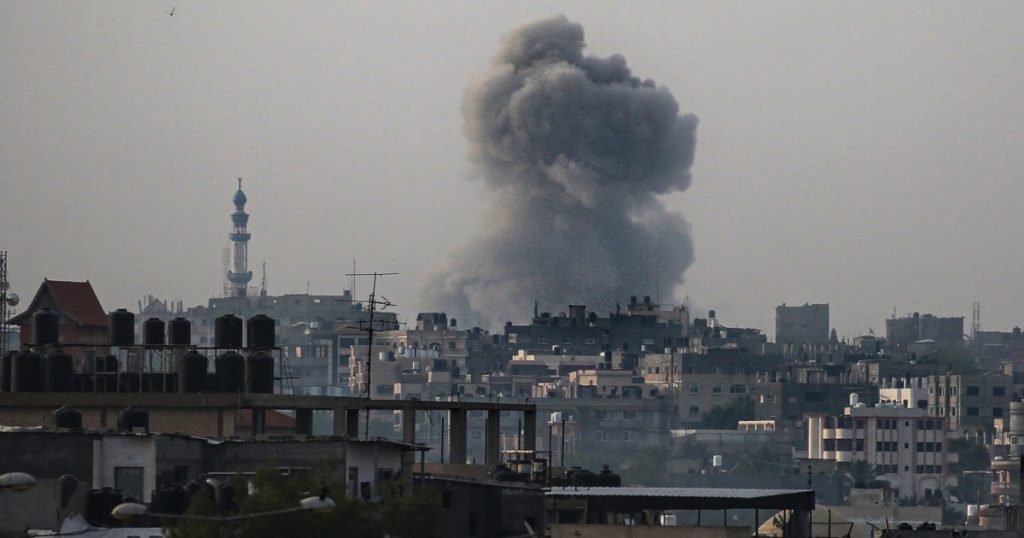Pressure is mounting on Israeli Prime Minister Benjamin Netanyahu to change course in the ongoing war on Hamas in Gaza, as key members of his war cabinet threaten to quit amidst weeks of foreign criticism. Former defense minister Benny Gantz, a rival of Netanyahu, has given the prime minister three weeks to adopt a new plan, warning that failure to do so would result in his party quitting the government. Gantz’s intervention highlights doubts over the government’s strategy in the war, with concerns raised over the ongoing operations in Gaza and the humanitarian crisis that has ensued.
The public criticism from Gantz and current defense minister Yoav Gallant is exacerbating the rifts within Netanyahu’s government, potentially forcing him to rely more on far-right politicians who support Israeli rule over Gaza. Netanyahu has rejected Gantz’s ultimatum, stating that the conditions laid out would mean “a defeat of Israel.” The prime minister opposes the establishment of a Palestinian state, fearing it would become a “state of terror.” The pressure on Netanyahu to make a decision comes amid increased international calls, including from the U.S., to present a plan for Gaza that avoids invasion and prioritizes humanitarian concerns.
Israeli Defense Forces have faced challenges in Gaza, with a friendly fire incident resulting in the deaths of 5 soldiers and destruction of hundreds of homes. Gantz’s six-point plan includes demands for the return of hostages, replacement of Hamas’ rule with an international administration, and normalization of relations with Saudi Arabia. The ongoing operations in Gaza, particularly in Rafah, have displaced hundreds of thousands of Palestinians and raised concerns about access to basic necessities like water and sanitation. UNRWA’s commissioner general has highlighted the dire conditions people are facing in Gaza, urging more efforts to provide emergency humanitarian assistance.
The criticism faced by Netanyahu extends to accusations of putting personal interests ahead of the country’s needs. Far-right politicians have condemned Gantz and Gallant for their public confrontation of the prime minister, calling for their resignation and accusing them of hindering the progress of the war. Gantz’s threat to quit the government by June 8 if Netanyahu fails to adopt his plan has further exacerbated tensions within the ruling coalition. Netanyahu’s insistence on continuing operations in Rafah despite international pressure indicates his determination to eliminate Hamas, even if it means prolonging the conflict and risking further humanitarian crisis in Gaza.
The deepening divisions within Netanyahu’s government and the mounting pressure to present a viable plan for Gaza indicate a critical moment in the ongoing conflict with Hamas. The choice between continuing the attritional war with potentially dire consequences for Israel or adopting a new strategic plan that prioritizes humanitarian concerns has become a central point of contention within the Israeli leadership. The ultimatum issued by Gantz has pushed Netanyahu to make a decision on the future direction of the war, amidst escalating criticism from within his own war cabinet and the international community. The coming weeks will be crucial in determining how Netanyahu navigates the political and strategic challenges posed by the war on Hamas.


